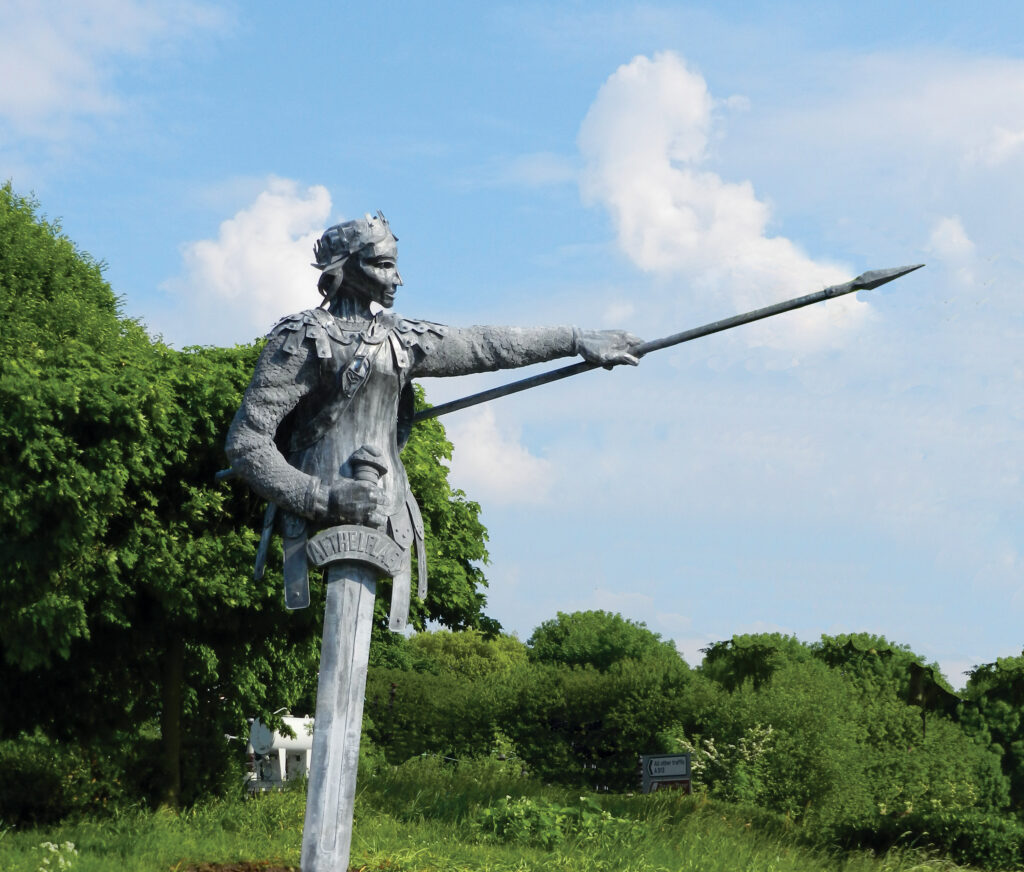Æthelstan the Glorious part 4: Woman’s Work

Although his father had put him aside, Æthelstan could have had no better mentor than his aunt, Æthelflæd. Alfred had regained half the ancient and historic kingdom of Mercia on signing the treaty with Guthrum that had divided the country into the Danelaw and Anglo-Saxon territory. Mindful of Mercian sensibilities, Alfred had installed a local alderman, Æthelred, to govern it rather than imposing direct rule from Wessex upon a proud and independent kingdom. But to ensure that he was kept informed of what the Mercians were doing, Alfred married his eldest daughter, the clever and determined Æthelflæd, to Æthelred.
When Æthelred fell victim to a long and debilitating illness, it was Æthelflæd who took control of the kingdom. This was unique in Anglo-Saxon history: a woman as de facto ruler of a kingdom. But Æthelflæd had already proven herself to her people: she was known ever after as Æthelflæd, Lady of the Mercians.
When Alfred died, Æthelflæd continued to align Mercian strategy with that of her brother, Edward. It was the strategy laid out by their father, Alfred, and one that he had entrusted to his children to see through: first the securing of their realms and then the reconquest of the Danelaw.
Teaching her nephew, Æthelstan, as she went, the Lady of the Mercians advanced inexorably into what had been Viking-held territory, turning the defensive strategy of burhs, fortified towns, into an offensive tactic by fortifying towns as she captured them. By 918, Edward and Æthelflæd had done what two decades earlier must have seemed impossible: they had reconquered the Danelaw. But Æthelflæd died on 12 June 918, and it was to Edward that “all the people who had settled in Mercia, both Danish and English, submitted”, and following Æthelflæd’s death he moved quickly to incorporate Mercia into his realm, removing Æthelflæd’s daughter, Ælfwynn, from power and putting her into a convent.
Edward was now king of Wessex and Mercia but he had sons with his queen consort whom he favoured and who could certainly count on more support in Wessex than Æthelstan. What would happen on Edward’s death remained an open question.
0 Comments